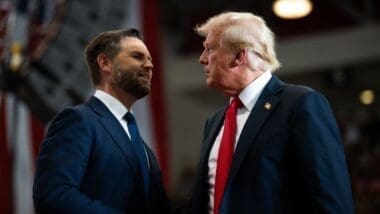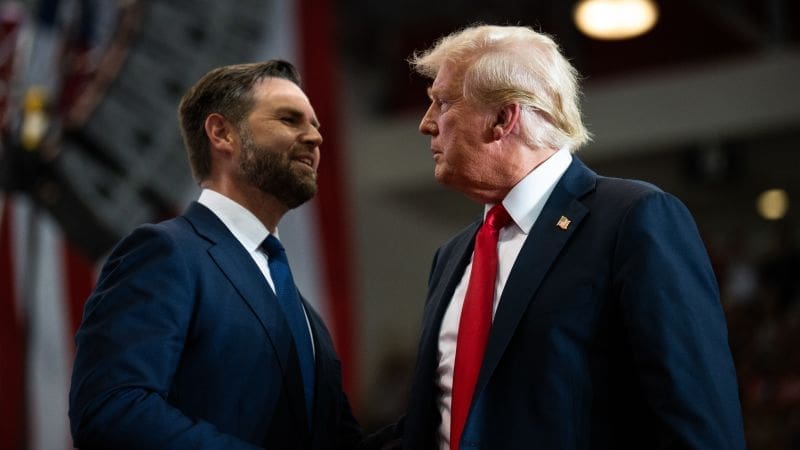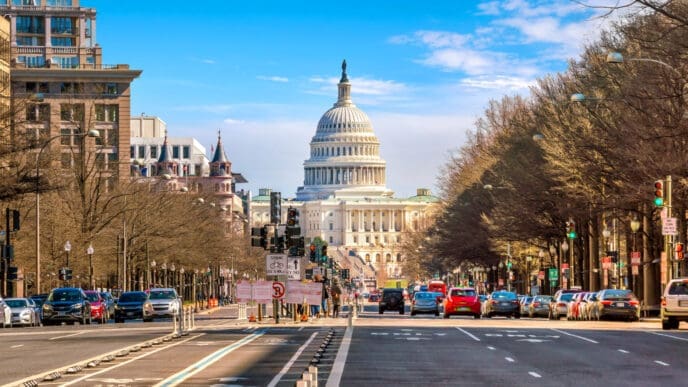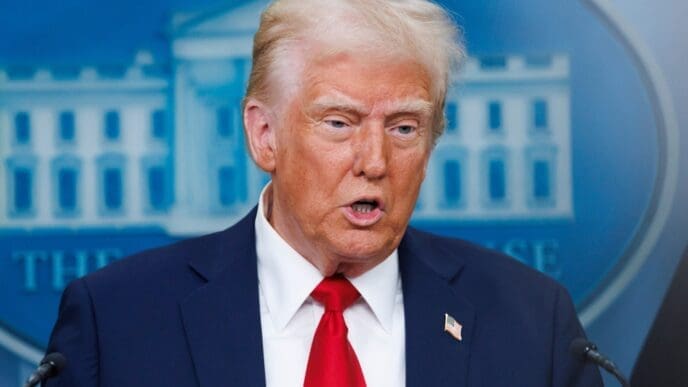President-elect Donald Trump, alongside Vice President-elect JD Vance, has voiced strong opposition to a government funding deal negotiated by House Speaker Mike Johnson, increasing the likelihood of a government shutdown mere days before the deadline.
Trump and Vance have criticized the short-term funding bill, stating that it prioritizes Democratic interests and fails to address the looming issue of the U.S. debt limit. According to their joint statement, the proposed deal is insufficient without an accompanying increase in the debt ceiling—a measure they deem necessary to adequately support American farmers, disaster relief efforts, and the nation as it moves towards 2025.
House Majority Leader Steve Scalise announced the cancellation of the funding plan following Trump and Vance’s public denunciation, as the proposed agreement did not align with their stipulations around the debt ceiling. Scalise, who had yet to speak directly with Trump, confirmed ongoing negotiations among Republicans to link debt ceiling provisions with government funding.
The abrupt rejection of Johnson’s deal has left GOP lawmakers scrambling. Trump’s influence among Republicans becomes apparent as GOP support for the funding proposal dwindles. Representative Michael Cloud criticized the last-minute changes and their implications on transparency and governance, reflecting broader GOP dissatisfaction with the rushed legislative process.
Meanwhile, House Minority Leader Hakeem Jeffries accused Republicans of abandoning the bipartisan agreement previously reached, indicating that Democrats would not assist in passing a GOP-crafted bill that negates their negotiated terms. Despite the last-minute disruptions, Senate Democrats are committed to the original plan, emphasizing the importance of proceeding with a deal that includes prior agreements.
This dispute underscores broader concerns about future debt ceiling debates. With the Fiscal Responsibility Act’s suspension of the debt ceiling set to expire on January 2, the Treasury Department will soon need to employ extraordinary measures to meet national financial obligations. Currently, the U.S. holds a debt of approximately $36.2 trillion, emphasizing the importance of careful fiscal planning to avoid detrimental consequences for the national economy.
As the deadline looms, President-elect Trump’s rejection of the funding bill significantly alters the legislative landscape, posing risks of governmental shutdowns and financial uncertainty. Stakeholders are now faced with the challenge of reaching a consensus that balances fiscal responsibility with necessary governmental functions.
Source: CNN













